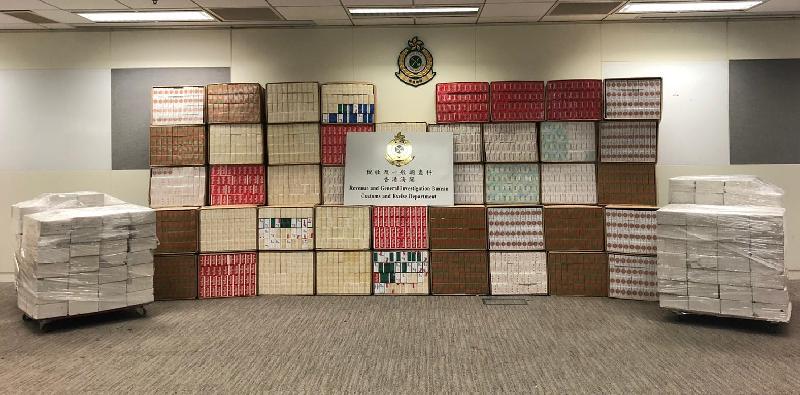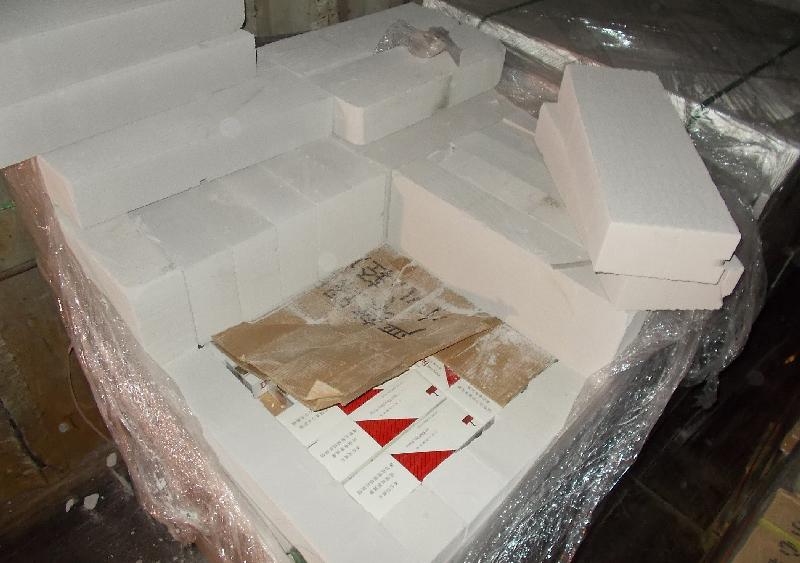LCQ9: Pharmacists practising in community pharmacies
Following is a question by the Hon Shiu Ka-fai and a written reply by the Secretary for Food and Health, Professor Sophia Chan, in the Legislative Council today (November 27):
Question:
Some representatives of the pharmacy trade and pharmacists have relayed to me that registered pharmacists practising in community pharmacies may perform an important function of enhancing primary healthcare services, thereby alleviating the burden on the public healthcare system. For example, they may provide members of the public with services such as drug consultation and inspection, guidance on proper medication, simple tests (measuring cholesterol, blood glucose and blood pressure levels), and advice on seeking medical treatment. On the other hand, the pharmaceutical trade has been fighting for over a decade for implementing in Hong Kong a system of separation of prescribing from dispensing of drugs (SPD) (i.e. doctors being responsible for disease diagnosis and prescription only while pharmacists for drug dispensing). However, the Government has not given any definite response so far. In this connection, will the Government inform this Council:
(1) given that pharmacists are not included in the 10 types of healthcare professionals covered by the current Elderly Health Care Voucher Scheme, whether the Government will include pharmacists in the Scheme to increase the options of primary healthcare services available to the elderly under the Scheme; if so, of the details and implementation timetable; if not, the reasons for that;
(2) whether it studied, in the past three years, the functions that may be performed by registered pharmacists in primary healthcare services; if so, of the details; if not, whether it will conduct such a study expeditiously;
(3) given that at present, quite a number of places (e.g. the United States, the United Kingdom, Taiwan, Beijing and Macao) have implemented SPD, whether the Government will make reference to the relevant practices and implement SPD in Hong Kong expeditiously; if so, of the details and implementation timetable; if not, the reasons for that; and
(4) whether it has assessed the conditions that need to be met in order to achieve the dispensing of drugs in qualified community pharmacies to patients with prescriptions by doctors in public hospitals; whether it will launch a pilot scheme which adopts this drug dispensing method to ameliorate the manpower shortage problem in public hospitals and provide patients with an additional option; if so, of the details and implementation timetable of such a scheme; if not, the reasons for that?
Reply:
President,
My reply to the various parts of the question raised by the Hon Shiu Ka-fai is as follows:
(1) Currently, the Elderly Health Care Voucher Scheme (the Scheme) subsidises eligible Hong Kong elders aged 65 or above with an annual voucher amount of $2,000 to use private primary healthcare services provided by 10 types of healthcare professionals, viz. medical practitioners, Chinese medicine practitioners, dentists, nurses, physiotherapists, occupational therapists, radiographers, medical laboratory technologists, chiropractors and optometrists with Part I registration under the Supplementary Medical Professions Ordinance (Cap. 359). Vouchers can be used for preventive, curative and rehabilitative services, including the treatment or services prescribed and provided by participating healthcare service providers in their professional capacity to meet the healthcare needs of elders after consultation, as well as the medication and healthcare products provided to elders during the course of treatment. Since the launch of the Scheme, the Government has stipulated that vouchers cannot be used for sole purchase of products such as medication or healthcare products in order to prevent abuse (e.g. purchase of product that is not used by the elder himself/ herself).
When considering whether to expand the types of healthcare service providers under the Scheme, the Government needs to take into account the services that can be provided by the newly added healthcare service providers in the community, the elders’ needs for and receptiveness to the relevant services, the risk of abuse of the vouchers, and the views of different stakeholders, etc. As shown in the outcome of the review of the Scheme completed by the Department of Health earlier this year, the majority of elders interviewed considered the coverage of healthcare services under the Scheme sufficient. We will keep on reviewing the operation of the Scheme, with a view to ensuring that the Scheme can continue to meet the Government’s objective of enhancing primary healthcare services for the elderly.
(2) In a bid to shift the emphasis of the present healthcare system and mindset from treatment-oriented to prevention-focused, the Food and Health Bureau is now setting up District Health Centres (DHC) in all 18 districts across the territory for providing district-based primary healthcare services through medical-social collaboration and public-private partnership. The aim is to enhance the public’s capability in self-management of health and provide support for the chronically ill.
Through the operator and engagement of private healthcare network, DHC provides primary, secondary and tertiary prevention services. The government-funded services in DHC, including health promotion, health assessment, chronic disease management and community rehabilitation, will be provided by a multidisciplinary team, comprising nurses, allied health professionals, pharmacists, social workers and supporting staff.
Pharmacists are one of the core members of DHC’s multidisciplinary team. The first DHC in Kwai Tsing District commenced operation in September 2019. Currently, the Kwai Tsing DHC has engaged a full-time pharmacist to provide medication consultation services to the clients in order to maximise the benefit of drug treatment, reduce reliance and lower risk in the use of medicines. The pharmacist will also work with other professionals of the multidisciplinary team in health promotion and health education activities.
Taking into account the experience gained from the Kwai Tsing DHC, we will adopt an evidence-based approach to evaluate the effectiveness of DHC key services. Under the guidance of the Steering Committee on Primary Healthcare Development, we will review ways to further expand other primary healthcare services through DHC and the coordination between the professionals to align with the development of primary healthcare.
(3) and (4) Under the current arrangement in the public healthcare system, doctors are responsible for consultation and prescription, while pharmacists are responsible for the dispensing of drugs. In addition, patients have the right to ask their doctors at private clinics for a prescription and obtain the drugs from pharmacists in community pharmacies. However, if a comprehensive separation of prescribing from dispensing of drugs were to be mandated, it would have far-reaching implications on, amongst others, the current role of doctors in solo-practice, manpower demand for pharmacists and medical expenditure of the public. It would also involve a major shift in the health seeking behaviour of the public. The matter would require an extensive and thorough discussion by the community as a whole.
As regards the arrangement to allow dispensing of drugs in qualified community pharmacies to patients with prescriptions by doctors in public hospitals, it involves various considerations including legal responsibility, protection of patient privacy and resource allocation. Issues regarding the supply, management and quality assurance of drugs, service certification, fee arrangement, and the division of responsibilities between community pharmacists and pharmacists of the Hospital Authority in the treatment of patients throughout the entire service process, etc. also require careful consideration.
We consider that any changes to be introduced should be conducive to the co-operation between doctors and pharmacists and that the well-being of patients should prevail. Before making any major changes, a consensus should be reached by members of the community. The Government will continue to listen to the views of all the stakeholders. read more



